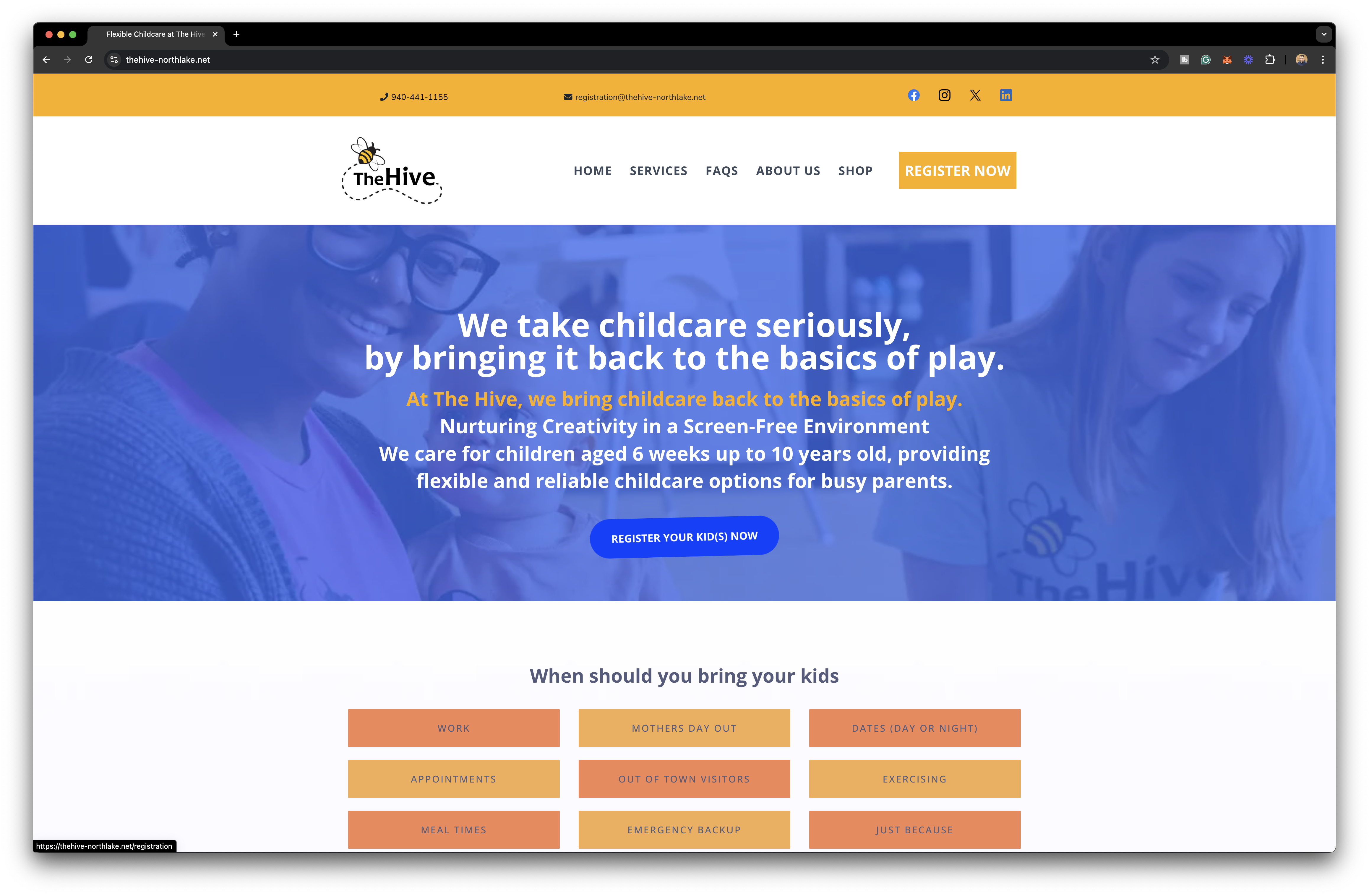In today’s digital marketplace, local search optimization is not just an option; it’s a necessity. Did you know that nearly 80% of consumers use search engines to find local businesses? This article will explore the impact of local search optimization on business success and outline effective strategies for improving rankings in search results. Readers will learn how to enhance their visibility to customers, address common mistakes that hinder success, and prepare for future search trends. By engaging with this content, business owners will gain valuable insights to attract more customers and boost retail performance through informed research and knowledge.
Key Takeaways
- Accurate business information across platforms builds customer trust and improves local searchvisibility
- Optimizing for mobile is essential as many local searches occur on mobile devices
- Engaging content with local keywords enhances brand loyalty and customer engagement
- Positive online reviews significantly impact local search rankings and consumer trust
- Utilizing analytics tools helps businesses track performance and refine their local search strategies
Understanding the Impact of Local Search Optimization on Business Success

Local search optimization refers to the practice of enhancing online presence to attract local consumers through platforms like Apple Maps. This strategy is vital as 78% of mobile local searches result in offline purchases. By driving customer engagement through relevant results, local search also builds brand trust, establishing connections with the target audience and increasing valuable backlinks.
Define Local Search Optimization and Its Importance
Local search optimization involves refining a business’s online presence to enhance visibility in local search results, particularly on platforms like Google. A well-optimized Google listing ensures that potential customers can easily find essential business information, such as location, hours of operation, and contact details. This practice is crucial as consumers increasingly rely on their mobile devices and web browsers to search for nearby services, fostering immediate engagement and driving foot traffic to physical establishments.
The importance of local search optimization cannot be overstated, as it directly correlates with a business’s ability to attract local clientele. By utilizing analytics tools, businesses can track user interaction with their online listings, allowing them to adjust strategies based on customer behavior. For instance, a local retailer noticing an uptick in mobile searches such as “ask engine optimization near me” may prioritize optimizing their listing to present promotions or relevant product information tailored for on-the-go shoppers, consequently increasing sales opportunities.
Highlight Statistics That Illustrate Local Search Significance
Statistics reveal that 76% of individuals who conduct a local search visit a business within a day, underscoring the urgency for effective local search optimization. Accurate information, such as a telephone number and location on a landing page, is critical for businesses aiming to improve their visibility. Additionally, maintaining a strong online reputation through consistent citations across directories enhances trust with potential customers, which is vital for any local business looking to thrive.
Moreover, content marketing plays a significant role in local search success, with 70% of consumers preferring to learn about a company through engaging articles rather than traditional advertisements. By optimizing their content to include specific local keywords and addressing community needs, businesses can attract more foot traffic. This approach not only boosts local search rankings but also creates a lasting connection with the audience, driving brand loyalty and repeat visits.
Examine How Local Search Drives Customer Engagement
Local search optimization significantly enhances customer engagement by improving a business’s visibility in organic search results. When businesses optimize their online presence, they attract local consumers actively seeking their products or services. For example, a company that collaborates with the local chamber of commerce may benefit from increased credibility and exposure, facilitating more direct connections with potential customers in their community.
Link building also plays a vital role in driving customer engagement, as obtaining high-quality backlinks can boost a business’s standing in local search rankings. As awareness of a business grows, prospects are more likely to reach out for inquiries and visit physical locations. By focusing on local search optimization, businesses not only strengthen their online reputation but also cultivate lasting relationships with the audience, ultimately steering more foot traffic and sales opportunities.
Explore the Role of Local Search in Building Brand Trust
Local search optimization plays a crucial role in building brand trust among consumers. By ensuring that accurate and consistent information appears in search engine results pages, businesses can instill confidence in potential customers. When users find a business easily and see relevant keyword research reflected in the listings, it reinforces the perception of reliability and credibility, making them more likely to engage with that brand.
Moreover, actively improving local SEO through targeted keyword strategies allows businesses to connect more effectively with their community. For instance, when a customer searches for services nearby and encounters a well-optimized listing with positive reviews, it directly impacts their trust. As brandvisibility increases in local searches, so too does the likelihood of fostering enduring relationships with customers who appreciate consistent and accessible information.
| Strategy | Description | Impact on Brand Trust |
|---|---|---|
| Accurate Listings | Ensuring all business information is correct and up-to-date across platforms. | Increases confidence and reliability in brand perceptions. |
| Keyword Research | Identifying and integrating relevant keywords in content and listings. | Enhances visibility in local search results, connecting better with target audiences. |
| Positive Reviews | Encouraging customers to leave positive feedback online. | Boosts business credibility and encourages new customer engagement. |
Local search optimization shapes how businesses find success. Now, it is time to assess the current landscape and see where opportunities lie.
Assessing the Current Local Search Landscape

Analyzing recent trends in local search behavior reveals significant shifts in how consumers interact with search engines. Understanding these changes in search patterns is essential for businesses aiming to improve local search rankings using effective tools like Google Business Profile. Identifying key platforms and algorithms will provide actionable insights for leveraging zip code-targeted strategies in local searches.
Analyze Recent Trends in Local Search Behavior
Recent shifts in consumer behavior have underscored the increasing importance of local search optimization in digital marketing strategies. With the rise of mobile device usage, more users are turning to Google Local for immediate solutions, seeking products and services close to their locations. Businesses that tailor their online presence, particularly through Google Business profiles, can significantly enhance their brandvisibility and relevance in local searches.
Current data indicates that local search results are often prioritized over broader search inquiries, making it essential for businesses to adapt their strategies. Ensuring that product offerings, services, and essential business information are correctly represented can improve engagement and drive foot traffic. Companies that stay attuned to these trends will not only strengthen their local presence but also foster a loyal customer base that appreciates their commitment to providing relevant and timely information.
| Trend | Description | Impact on Business |
|---|---|---|
| Mobile Local Searches | Increased reliance on mobile devices for local information. | Urgency in optimizing online listings to attract foot traffic. |
| Google Local Prioritization | Local search results are often prioritized in search queries. | Enhanced visibility for businesses with optimized listings. |
| Accurate Information | Need for up-to-date listings across platforms. | Improved customer engagement through reliable data. |
Understand the Changes in Consumer Search Patterns
Consumer search patterns have evolved significantly, largely driven by the increasing reliance on mobile devices for quick, local information. More individuals are using their smartphones to find products and services nearby, leading to a surge in mobile local searches. Businesses that recognize this transition can optimize their content to meet users’ immediate needs, ensuring they appear prominently in local search results.
Moreover, data indicates that customers are prioritizing immediate and relevant results when searching for local services. For example, a person searching for “coffee shops near me” expects to see listings that provide accurate information, such as hours of operation and customer reviews. By understanding these changes in search behavior, businesses can tailor their online presence to capture local interest effectively, ultimately driving traffic and increasing customer engagement.
Identify Key Local Search Platforms and Tools
Essential local search platforms include Google My Business, Yelp, and Bing Places for Business. Google My Business stands out as a crucial tool, allowing businesses to manage their online presence directly on Google, showcasing essential information such as location, contact details, and customer reviews. An optimized Google listing can significantly enhance visibility, making it easier for potential customers to find relevant services nearby.
In addition to these platforms, leveraging tools like Moz Local and BrightLocal can provide valuable insights into local search performance. These resources assist businesses in monitoring online reviews, ensuring consistent information across various directories, and understanding local keyword rankings. By utilizing these tools, businesses can effectively improve their local search optimization efforts, ultimately driving higher engagement and foot traffic to their locations.
The local search landscape is a battleground, rich with opportunities waiting to be seized. Now, it’s time to implement strategies that will elevate your presence and boost your rankings.
Implementing Effective Strategies for Enhancing Local Search Rankings

Enhancing local search rankings requires a strategic approach that includes several key elements. Businesses should optimize their Google Business Profile to boost visibility, utilize targeted local keywords throughout their content, and build local citations and backlinks to strengthen authority. Additionally, leveraging customer reviews can enhance local credibility, while ensuring a mobile-friendly website accommodates local users is essential for attracting engagement.
These strategies work collectively to improve a business’s local search performance, fostering greater connection with the community and driving foot traffic.
Optimize Your Google Business Profile for Better Visibility
Optimizing a Google Business Profile is a crucial step for any business aiming to enhance local searchvisibility. By ensuring that all essential information, including business name, address, phone number, and operating hours, is accurate and up-to-date, businesses can significantly improve their chances of appearing in local search results. Engaging visuals, such as photos of the location or products, can also attract potential customers and encourage them to take action.
Moreover, businesses should actively encourage customers to leave reviews on their Google Business Profile. Positive reviews not only build credibility but also influence local search rankings. Regularly monitoring and responding to reviews can foster a sense of community and engagement, addressing any customer concerns while showcasing commitment to service excellence. This proactive approach can lead to a more robust online presence, ultimately driving more foot traffic to physical locations.
| Action | Description | Benefits |
|---|---|---|
| Update Business Information | Make sure all contact details are accurate and current. | Improved search rankings and customer trust. |
| Add Engaging Visuals | Upload high-quality images of the business and products. | Increased customer interest and engagement. |
| Encourage Customer Reviews | Request feedback from customers after their visits. | Enhanced credibility and better local search performance. |
Utilize Targeted Local Keywords in Your Content
Utilizing targeted local keywords in content is essential for enhancing local search rankings. By incorporating specific phrases that reflect the services or products offered within a defined geographic area, businesses can significantly increase their visibility to potential customers. For example, a bakery in San Diego should focus on terms like “San Diego bakery” or “fresh pastries in San Diego,” ensuring that local consumers looking for those exact services can easily find them.
In addition, strategically weaving local keywords into website content, blog posts, and social media updates helps search engines understand the relevance of the business in local contexts. This not only attracts more foot traffic but also establishes a connection with the community. By regularly updating content with these local keywords, businesses can effectively address the needs of their target audience and position themselves as the go-to solution in their area, driving growth and engagement.
Build Local Citations and Backlinks to Strengthen Authority
Building local citations and backlinks is essential for businesses aiming to enhance their authority in local search results. By ensuring consistent business information across various online directories, companies can improve their credibility and visibility. For instance, being listed on reputable sites like Yelp or TripAdvisor not only confirms a business’s presence but also contributes to higher rankings in local search outcomes.
Moreover, acquiring backlinks from local blogs and news websites can significantly boost a business’s standing. These backlinks signal to search engines that the business is relevant and trustworthy within the community. Engaging with local influencers or participating in community events and sponsoring local initiatives are effective strategies for generating these valuable links, thus enhancing both local authority and visibility.
| Strategy | Description | Impact on Local Authority |
|---|---|---|
| Local Citations | Ensure consistent NAP (Name, Address, Phone number) across directories. | Builds credibility and enhances local search visibility. |
| Backlink Acquisition | Secure links from reputable local websites and blogs. | Increases authority and relevance in local searches. |
| Community Engagement | Participate in local events and sponsor initiatives. | Generates backlinks and strengthens local connections. |
Leverage Customer Reviews for Enhanced Local Credibility
Leveraging customer reviews is an essential strategy for businesses aiming to enhance local credibility and improve their search rankings. Positive reviews not only establish trust among potential customers but also significantly impact local visibility. For instance, a restaurant with a high volume of favorable reviews on platforms such as Google and Yelp is likely to appear prominently in search results, driving more traffic to their location.
To maximize the benefits of customer feedback, businesses should actively encourage satisfied customers to leave reviews. Responding to these reviews—whether positive or negative—can further enhance engagement and underscore a commitment to customer satisfaction. This proactive approach not only boosts the business’s reputation but also cultivates loyalty among local consumers, ultimately aiding in the effective optimization of local search presence.
Ensure Your Website Is Mobile-Friendly for Local Users
Ensuring a website is mobile-friendly is a fundamental aspect of local search optimization. Many consumers utilize mobile devices for their searches, expecting quick access to information about nearby businesses. A responsive design allows users to navigate seamlessly, minimizing bounce rates and encouraging deeper engagement with content. For instance, a restaurant with a mobile-optimized site can display its menu, location, and hours in a format easily accessible on a smartphone, enhancing user experience and potentially increasing foot traffic.
Mobile-friendly websites not only cater to user preferences but also significantly influence search engine rankings. Search engines prioritize sites that offer good mobile usability, meaning businesses that neglect this aspect may find themselves lower in local search results. By optimizing their website for mobile users, businesses can ensure that they remain visible to local customers searching for their services, ultimately driving increased engagement and sales opportunities. Consider these key strategies for achieving mobile optimization:
- Implement responsive web design.
- Optimize loading speeds for mobile devices.
- Ensure clear calls to action are easily clickable.
- Include local keywords in titles and descriptions.
- Test usability on multiple mobile devices.
With effective strategies in place, the next step is clear. Assessing the impact of these efforts reveals what truly drives success.
Measuring the Success of Local Search Optimization Efforts

To gauge the effectiveness of local search optimization efforts, businesses must identify key performance indicators (KPIs) that reflect their online visibility and customer engagement. Utilizing analytics tools enables tracking of local search performance, allowing for data-driven decisions. By adjusting strategies based on these performance insights, businesses can continuously refine their approach to enhance their local presence and attract more customers.
Identify Key Performance Indicators to Monitor
Monitoring key performance indicators (KPIs) is essential for assessing the effectiveness of local search optimization efforts. Metrics such as website traffic, conversion rates, and the number of customer inquiries provide valuable insights into how well a business is performing in local searches. For example, a rise in website visits from local searches indicates improved visibility, while an increase in calls or foot traffic can signal successful engagement with the target audience.
Additionally, tracking the number of reviews and the overall rating on platforms like Google My Business can shed light on customer sentiment and brand trust. High ratings and positive feedback not only enhance local search rankings but also attract more potential clients. Businesses should leverage analytic tools to measure these KPIs regularly, allowing them to fine-tune their strategies based on real data and ultimately drive growth through effective local search optimization.
Utilize Analytics Tools to Track Local Search Performance
Utilizing analytics tools is essential for businesses aiming to track local search performance effectively. With solutions such as Google Analytics and Google My Business Insights, organizations can monitor critical metrics like website traffic, user interactions, and the effectiveness of local searches. These insights not only reveal how customers find the business but also help identify areas needing improvement, allowing for strategic adjustments tailored to local market demands.
Moreover, businesses can leverage these analytics tools to assess the impact of their local search optimization efforts. For instance, by tracking conversion rates from local searches, companies can determine the effectiveness of their online presence in converting inquiries into foot traffic or sales. This data-driven approach enables businesses to refine their strategies continuously, ultimately leading to stronger engagement with the community and increased visibility in local searches:
| Metric | Description | Importance |
|---|---|---|
| Website Traffic | The number of visitors coming from local searches. | Indicates visibility and reach within the local market. |
| Conversion Rates | Percentage of users who take desired actions (e.g., calling, visiting). | Measures the effectiveness of local search optimization. |
| User Interactions | Engagement rates on local listings or social media. | Reflects customer interest and potential for conversion. |
Adjust Strategies Based on Performance Insights
Adjusting strategies based on performance insights is essential for businesses aiming to maximize the benefits of local search optimization. By continuously analyzing key performance indicators, such as website traffic and conversion rates, organizations can identify what works and where adjustments are needed. For example, if local search metrics indicate low engagement despite high visibility, it may be necessary to refine the content or enhance the Google Business profile to better meet customer expectations.
Business owners should establish a routine for reviewing performance data to enable timely adjustments to their local search tactics. Regular evaluation of insights can inform decisions on optimizing local keywords, enhancing customer engagement through tailored content, and maintaining consistency across different platforms. This proactive approach ensures that businesses remain relevant within their communities, attracting and retaining local customers effectively:
| Action | Description | Outcomes |
|---|---|---|
| Review Analytics | Regularly evaluate performance indicators. | Identify effective strategies and areas for improvement. |
| Refine Content | Enhance online listings and keywords based on data. | Increase customer engagement and local visibility. |
| Adjust Practices | Implement changes based on performance trends. | Strengthen connection with the target market. |
Success in local search is easy to measure with the right tools. Yet, pitfalls often lurk in the shadows, waiting to trip up those who seek to excel.
Common Mistakes to Avoid in Local Search Optimization

Identifying pitfalls in local SEO practices is critical for businesses aiming to enhance their online visibility. Inconsistent business information can undermine trust and hinder search performance. Additionally, neglecting mobile optimization can lead to a poor user experience, especially as mobile searches surge. Each of these aspects plays a crucial role in effective local search optimization, warranting careful attention and strategic adjustments.
Identify Pitfalls in Local SEO Practices
In local SEO practices, one common pitfall businesses encounter is the failure to maintain consistent and accurate contact information across multiple platforms. Discrepancies in the business name, address, or phone number can lead to confusion, causing potential customers to lose trust and abandon their search. For example, if a restaurant lists different operating hours on Google and Yelp, local search algorithms may penalize that establishment’s visibility, diminishing the chances of attracting foot traffic.
Another frequent mistake involves neglecting mobile optimization, which can severely impact user experience. With a significant percentage of local searches conducted on mobile devices, businesses that do not provide a mobile-friendly website can deter users from engaging. A poor mobile experience—such as slow loading times or difficult navigation—can lead customers to choose competitors instead. Therefore, ensuring that websites are optimized for mobile is essential for enhancing local search performance and connecting effectively with the target audience.
Understand the Impact of Inconsistent Business Information
Inconsistent business information can severely impact local search optimization strategies, resulting in decreased visibility in search engine results. For instance, discrepancies in contact details—such as variations in a business’s phone number or address across different platforms—can confuse potential customers, leading them to choose competitors who present clear and accurate information. As businesses increasingly rely on local SEO to attract customers, maintaining consistent and accurate details across all online listings remains essential.
Moreover, search engines prioritize reliable information when determining search rankings. If a business fails to provide uniform details, it risks appearing less trustworthy to both search engines and consumers. This lack of trust can lead to lower click-through rates and decreased foot traffic, ultimately affecting sales. To avoid these pitfalls and enhance local search optimization, businesses should regularly audit their listings to ensure that all information is accurate and synchronized across various platforms:
| Issue | Impact | Solution |
|---|---|---|
| Inconsistent NAP (Name, Address, Phone Number) | Reduces trust and visibility in search results. | Conduct regular audits of online listings. |
| Conflicting Operating Hours | Confuses customers, leading to lost business. | Update all platforms with consistent hours. |
| Outdated Contact Information | Leads to missed customer inquiries. | Implement a routine for checking and updating details. |
Avoid Neglecting Mobile Optimization
Neglecting mobile optimization can pose significant challenges for businesses aiming to enhance their local searchvisibility. With a large volume of local searches conducted on mobile devices, a website that fails to load quickly or navigate easily can lead to high bounce rates. This translates into missed opportunities, as potential customers will turn to competitors that provide a more user-friendly mobile experience.
To effectively capture local traffic, businesses must ensure that their websites are responsive and mobile-friendly. For instance, a local café with a poorly designed mobile site may lose customers seeking immediate access to a menu or hours of operation. By prioritizing mobile optimization, businesses not only improve user engagement but also positively impact their local search rankings, ultimately attracting more foot traffic and inquiries.
As businesses learn from their mistakes, the path ahead reveals new opportunities. The future of local search optimization holds powerful trends that can shape success, and it’s time to explore what lies ahead.
Future Trends in Local Search Optimization and Business Success

The landscape of local search optimization is rapidly changing, influenced by evolving technologies that reshape consumer behavior. This section will discuss the significance of voice search and how it impacts local optimization efforts. Additionally, it will explore the role of artificial intelligence in developing effective local search strategies, providing businesses with practical insights to remain competitive in their respective markets.
Discuss Evolving Technologies Affecting Local Search
The rise of voice search technology fundamentally alters how consumers seek local information, making it essential for businesses to adapt their local search optimization strategies. With voice-activated assistance on devices such as smartphones and smart speakers, users are increasingly turning to queries like “find a bakery near me” or “restaurants open now.” Businesses that optimize their online presence for voice search through natural language and location-specific keywords can significantly enhance their visibility to these potential customers.
Moreover, artificial intelligence and machine learning are streamlining the process of local search by providing more personalized search experiences. For example, AI-powered algorithms analyze user behavior and preferences to deliver results that closely match individual needs. Businesses that leverage these technologies can better understand their target audience, allowing for tailored marketing strategies that resonate with local consumers, ultimately driving foot traffic and increasing sales opportunities.
Examine the Impact of Voice Search on Local Optimization
The rise of voice search technology significantly influences local optimization strategies for businesses. With a growing number of consumers using voice-activated devices to find nearby services, companies must adapt their online presence to accommodate natural language queries. For instance, optimizing content with conversational phrases like “best pizza near me” can improve visibility in voice search results and directly attract potential customers.
Businesses that embrace voice search optimization will see a direct impact on their ability to connect with local consumers. Incorporating structured data markup enhances search engines’ understanding of business information, leading to better rankings in voice search outcomes. By focusing on local keywords and providing accurate, accessible information, businesses can ensure they meet the needs of users seeking immediate solutions in their area:
| Key Strategy | Description | Impact on Local Search |
|---|---|---|
| Optimize for Conversational Phrases | Use natural language to reflect common voice queries. | Increases visibility in voice search results. |
| Incorporate Structured Data | Implement schema markup to improve search engine comprehension. | Enhances rankings in local voice search. |
| Maintain Accurate Information | Ensure business details are clear and consistent across platforms. | Builds trust and credibility with local consumers. |
Explore How Artificial Intelligence Shapes Local Search Strategies
Artificial Intelligence (AI) is transforming local search strategies by enhancing how businesses understand and engage with their target audience. Through predictive analytics and machine learning algorithms, AI enables businesses to analyze consumer behavior patterns and preferences. This data-driven approach allows for the tailoring of marketing efforts, ensuring that local search optimization aligns directly with what customers are actively seeking in their area.
Moreover, AI-powered tools can streamline the process of managing online presence across multiple platforms, ensuring that information remains consistent and accurate. By utilizing AI to optimize Google Business Profiles and other listings, businesses can improve their visibility in local searches. This strategic adaptation not only strengthens local brand recognition but also fosters customer trust, ultimately driving more foot traffic and enhancing business success.







